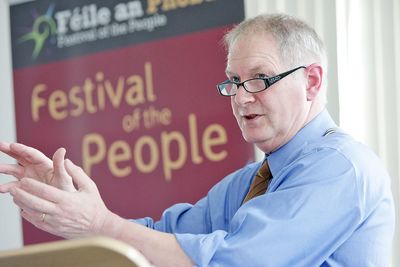
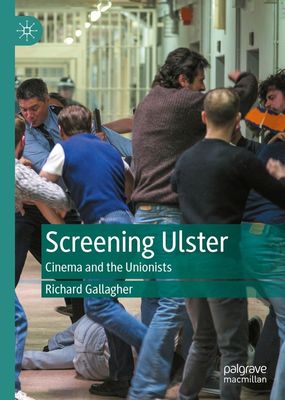
Screening Ulster: Cinema and the Unionists by Richard Gallagher (Palgrave Macmillan, £25)
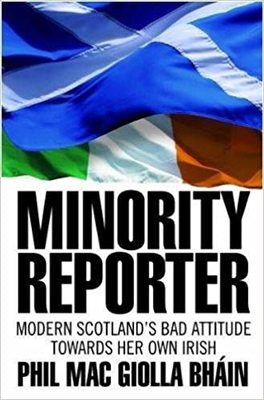
Minority Reporter: Modern Scotland’s bad attitude towards her own Irish, by Phil Mac Giolla Bháin (Frontline Noir, £9.99) IMAGINE the public row that would break out should football fans sing a song on the terraces demanding that a black player born in Britain should go home. Then imagine that the barracked footballer is a British-born Jew. Now imagine the song being directed at the crowd who support the black or Jewish player’s team. Such unacceptable behaviour would be dubbed racist and provoke an outcry. Given that the men were Britons, it would also be an example of gross ignorance. But, in Scotland, particularly in Glasgow, racist conduct towards people of Irish background, many of whose ancestors emigrated generations ago, persists. Although it doesn’t just happen inside football grounds, its most manifest instance is a disgraceful song that, despite being deemed racist by Scotland’s highest court, continues to be heard. According to its opening verse, immigrants from Ireland during the famine years of the 1840s (and over the course of the following century) “brought us nothing but trouble and shame”. Then comes the offensive refrain: “Well the famine is over. Why don’t they go home?” That song is the central feature of a penetrating analysis of anti-Irish racism by Phil Mac Giolla Bháin, who was born and raised in Scotland. His book was published in 2013 and I’m reviewing it a decade later for three reasons. First, because so little has changed; second, because it received no reviews at the time, itself significant; and third, because it makes a coherent and compelling distinction between sectarianism and racism. I could add a fourth. There is a definite link between the anti-Irish attitudes to be found in Glasgow with those evident in Belfast, where loyalists have adopted the famine song as their own. But let’s concentrate on Scotland’s shame, the tacit acceptance of racism that is unacceptable elsewhere in Britain. In 2017, a survey by a charity called Show Racism the Red Card found that 56% per cent of 513 people living in Scotland, and identifying as of Irish descent, said they had experienced anti-Irish racism.
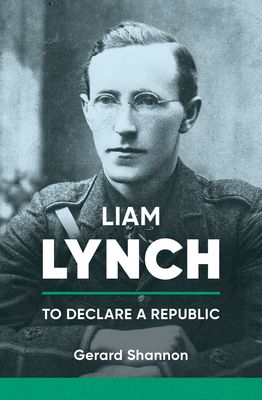
Liam Lynch: To Declare a Republic by Gerald Shannon (Merrion Press, £17.99)

Ties That Bind? Scotland, Northern Ireland and the Union, by Graham Walker and James Greer (Irish Academic Press, £17.99) ENGLISH imperialism has had a remarkable run. Initially by force of arms and then by force of its will, it managed to subjugate half the world. In so doing, a tiny country on a small island transformed itself into a Great Power. Its earliest major conquests were its immediate neighbours: Wales, Scotland and Ireland. These nations, with their own languages and cultures, were gradually, and violently, incorporated into an entity the English parliament came to regard as “Great Britain”. One major challenge to England’s hegemony over its nearest and not-so-dearest was the courageous decision by the Irish people to take up arms in 1916. England did its best (and, most definitely, its worst) to frustrate Ireland’s subsequent bid for independence, just as it did when confronted by later rebellions elsewhere in its global empire. As we know to our cost, England’s desperation to maintain a presence in Ireland culminated in a cynical act of partition and the establishment of an inherently unstable quasi state. Thus was born, in 1927, the United Kingdom of Great Britain and Northern Ireland. From its inception, the “united” bit of that title was little more than a polite fiction. Irish aspirations to reunite the country were always apparent and have become increasingly clear since the electoral success of Sinn Féin on both sides of the border. Scottish ambitions to break the link with England, though less obviously expressed for a long period, emerged with the rise to prominence of the Scottish National Party (SNP) and the narrow loss of the independence referendum it engineered in 2014. So, taking that recent history on board and their belief that we have reached a seminal moment in the state of affairs of both the Six Counties (a term they never use) and Scotland, the authors of this book register their disquiet about the future of the Union. Hence, of course, the question mark in their title.
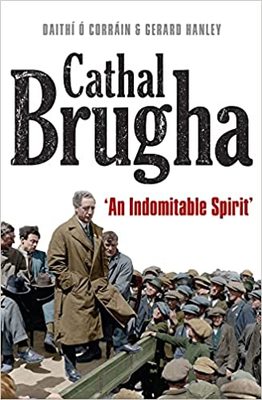
Cathal Brugha: ‘An indomitable Spirit’ by Daithí Ó Corráin and Gerard Hanley (Four Courts Press, £19.95/€24.95) IN the prologue, the authors assert that their book is not a biography. So, by those terms, I could argue that this is not a review. But let’s not turn reality on its head, nor indulge them in their self-deprecation because, given the paucity of available material, their “nuanced and multi-layered reappraisal” of Cathal Brugha’s life amounts to as good a biography as one could hope for. They present a sympathetic portrait of Brugha which reassesses his actions and challenges the opinions of his detractors. The authors’ consistent point is that Brugha has been misunderstood. The commonly-held view of him as something of a brute has been decontextualized. They believe he has not been given his due. One of the major reasons for the subsequent denigration of Brugha was his bitter opposition to Michael Collins. What the two had in common was their wish to see Ireland free from British control. To that end, both fought in the Easter Rising and both exhibited undoubted courage. Brugha was severely wounded in the conflict and walked ever after with a limp. He was deeply committed to the republican cause, having taken up arms after years as a member of the Gaelic League, the Irish Republican Brotherhood (IRB) and the Irish Volunteers. But Brugha’s modern reputation is built on largely negative interpretations of his post-Rising decisions. The defining moment was a tirade he delivered during the Dáil debate in January 1922 on the Anglo-Irish treaty. He dared to attack the notion that it was Collins who was solely responsible for winning the war against Britain. Instead, he argued that Collins’s military reputation “was no more than a figment of journalistic imagination.” In claiming that Collins did not deserve to have been “made a romantic figure, a mystical figure”, Brugha outraged those who admired the Big Fella’s leading role during the struggle with the Black and Tans. Even some of Brugha’s anti-treaty allies thought his comments counter-productive. A later speech in which he sought to tone down his criticism did not ameliorate the hostility he had generated. Collins and Brugha were very different personalities. The former was brash, liked a drink, smoked, swore and had little time for the church. Brugha, a devout Catholic, was an abstemious non-smoker who, unlike Collins, had an accountant’s attitude towards finances. Their power struggle centred on the control of two military organisations: the IRB, and the Irish Republican Army, the force sanctioned by the Dáil. Collins was both president of the IRB and director of organisation for the IRA. Brugha, nominally Collins’s superior as minister of defence, and opposed to the continuing existence of the “secret” IRB, watched aghast as Collins attempted to assert his influence over the IRA. He felt his ministerial authority was consistently undermined by Collins. As Ó Corráin and Hanley point out, Brugha guessed where this split would lead by writing: “Fighting has now been temporarily stayed, but only temporarily. I believe that, in our time, sooner or later, it will begin again.” This was six months before the outbreak of the civil war.
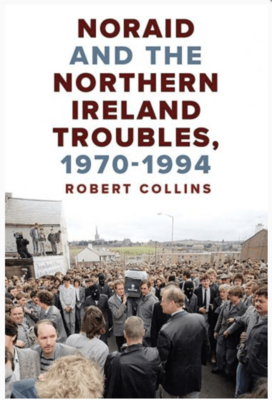
Review of Noraid and the Northern Ireland Troubles, 1970-1994 by Robert Collins (Four Courts Press, £45/€50) IN recent years, the USA has been widely and routinely praised for its help in forging the Good Friday Agreement. Fair enough. But only up to a point, because it conveniently overlooks the fact that over the course of many years the United States’ authorities worked hard to undermine the republican struggle and they did so at the bidding of, and in collusion with, successive UK governments. Several passages in this book are reminders of the way in which attempts by Irish Americans to lend both financial and moral support to the beleaguered people of the Six Counties were continually frustrated. Republicans were barred from entry to the States. Those who did get in were deported. For a considerable period, the State Department didn’t lift a finger to help nationalists. As for Irish people on the run from unjust Diplock courts who sought sanctuary in the land of the free, they found themselves in prison awaiting extradition. By far the most famous case involved Joe Doherty who escaped from Crumlin Road jail in 1981, during his trial for the killing of an SAS soldier, and managed to reach New York. It was two years before the FBI found him working as a bar tender in Manhattan and arrested him. He responded by seeking political asylum and, for the following nine years, he was held in prison throughout a series of legal battles aimed at preventing his extradition. His case became a cause célèbre, opening up debates about the collaboration between the UK and the USA, the politics of Margaret Thatcher and, significantly, the definition of what constituted a political prisoner. Prior to the Supreme Court decision that led to his deportation (thereby consigning him to a further six years in jail), his incarceration became a rallying point for the Irish American community, which was promoted enthusiastically by the Irish Northern Aid committee, better known as Noraid. The organisation highlighted Doherty’s predicament in order to publicise the plight of all those fighting to end British rule in Ireland and to raise money on behalf of hard-pressed nationalists. As far as the British and their US allies were concerned, it was merely a front for the Provos. They argued that Noraid funded the purchase of arms which were then smuggled from the States into Ireland. Whether it did or didn’t is not the concern of this book. The author is far more interested in the internecine conflict between the men (few, if any, women get a mention) who headed the organisations purporting to represent the best interests of Irish citizens in the northern war zone. For several reasons, that makes it a tough read. For a start, the alphabet soup of acronyms – IAC, INA, INC, IDAF, IPOW, NAIJ, ACUJ, AFL-CIO, IPOW, ISDOJ, BIS and FARA – is a pain. But that’s by the by. It is the narrative itself, with its thicket of otiose information, which lacks lucidity. Robert Collins has carried out meticulous research. Hats off to him for that. Yet, sadly, what has clearly been a labour of love for him will not find much love among readers. His account is replete with the minutiae of arcane political divisions, most of which are explored to little genuine effect.
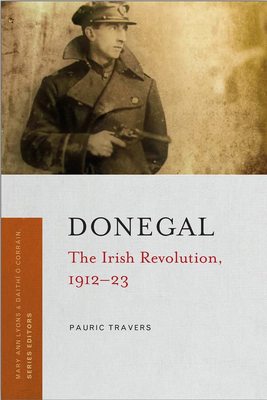
Review of Donegal: The Irish Revolution, 1912-23 by Pauric Travers (Four Courts Press, £22.50/€24.95) VISITORS who arrive in Donegal from countries elsewhere, including from Britain, wonder at the incongruity. It is Ireland’s northern-most county yet it is “in the South.” Surely it makes no geographical sense. Naturally, they ask why? How come it wasn’t hived off with those other six counties that comprise 'Northern Ireland'? After all, it’s in Ulster, isn’t it? Although I have answered that question many scores of times down the years, the simplicity of my reply rarely fails to elicit a measure of surprise, even shock. Perhaps it’s my bluntness: “Too many Catholics about the place.” I particularly enjoy saying this to British people because so few of them know anything about their state’s closest colony. Home Rule bills, the Rising, the Tan War, partition, the civil war – not to mention, the hundreds of years of British rule that went before – are usually a revelation. Irish history gets little, if any, airing in the British schools’ curriculum. When my visitors stand on the beach at Rathmullan and gaze at the statue representing the Flight of the Earls, they have no idea who sailed away and why. They know nothing of the subsequent Plantation of Ulster, the confiscation of land on behalf of the Protestant settlers and the dispossession of the indigenous Catholic inhabitants. Therefore, they have no clue as to how that policy culminated in Ireland’s partition and, fifty years’ later, generated the conflict they know as 'the Troubles'.
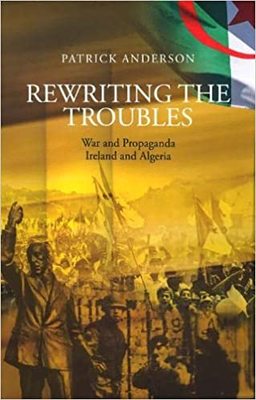
Review of Rewriting the Troubles: War and Propaganda, Ireland and Algeria by Patrick Anderson (Greenisland Press, £18). THIS is, quite simply, an extraordinary book. It should be on the reading list of student journalists across the globe because it illustrates how the controversial “propaganda model” proposed by Noam Chomsky and Edward Herman worked, and works, in reality. Their contention that media acts on behalf of power is proven beyond doubt by Patrick Anderson’s meticulous examination of newspaper coverage devoted to two similar anti-colonial struggles, those in Ireland and in Algeria. Rather than dealing with the political clientelism of Britain’s populist press, he chooses to concentrate his fire on two titles, renowned for their supposed independence and liberal ethos, The Guardian and The Observer. Before I go further, I need to record that I wrote for The Guardian for the best part of thirty years. But, crucially, my time there came long after the paper’s great crime against the people in the north of Ireland, which involved a persistent denial of the truth and a partiality bordering on racism. During the period covered by Anderson’s research, the editor was Alastair Hetherington, a sainted figure in British journalism. Ireland, however, was one of his blind spots, and he gave his deputy, John Cole, licence to do as he liked. As an unrepentant illiberal unionist who identified himself as British, what he liked was Stormont and its institutions of repression. Cole, “unmistakenly a Protestant son of Belfast”, as his Guardian obituary noted, championed internment in 1971 and went on advocating measures aimed at denying nationalists their civil rights.
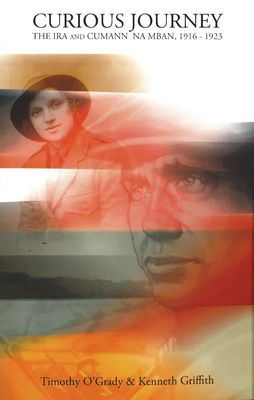
Review of Curious Journey: The IRA and Cumann na mBan, 1916-1923 by Tim O’Grady and Kenneth Griffith (Greenisland Press, £18) THE title of this book could not be more apposite. Although it refers to the curious journey of its central characters throughout Ireland’s uncompleted fight for freedom, it is also relevant to its own curious journey from print to bookshelf. That publishing journey is significant because it reminds us of the propaganda grip Britain exercised after it was ousted from twenty-six Irish counties and forcibly maintained its hold on the other six. Newspapers were encouraged to ignore its Irish colony, an unspoken request in which they obligingly co-operated, while television was subject to censorship.
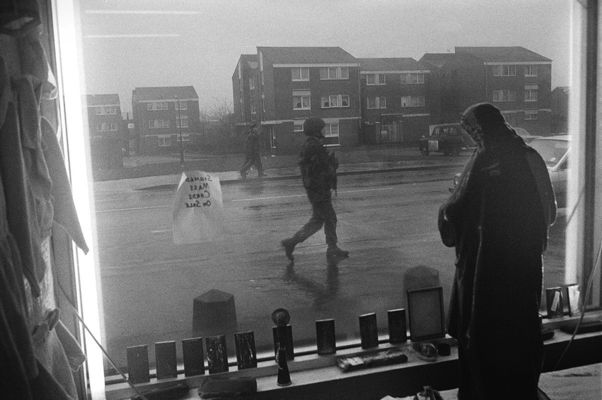
An opening page to the lavishly produced 'Belfast' tells us that the copyright for “text and images” rests with Krass Clement. But you will search in vain for text. He does not provide a single word: no captions, no names, no locations. Instead, he wishes his 112 black-and-white photographs to do the talking.
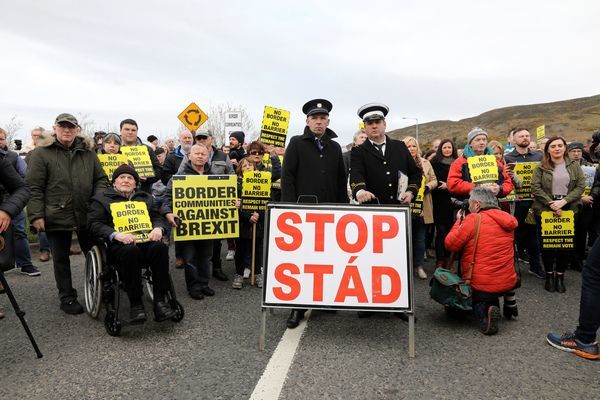
United Nation: The Case for Integrating Ireland by Frank Connolly (Gill Books, £14.99) How do you solve a problem called Identity? It’s a state of mind. It isn’t rational. It isn’t amenable to argument. It isn’t based on either prosperity or penury (it’s not the economy, stupid). It simply is. And this is the overarching, seemingly intransigent, factor that bedevils all those who present a logical case for the island’s political unity.
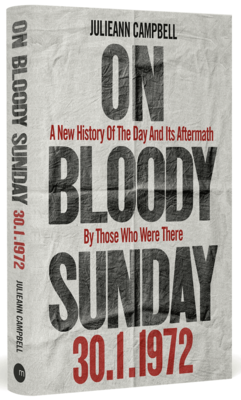
Review of On Bloody Sunday: A New History of the Day and its Aftermath by Julieann Campbell (Monoray, £16.99)
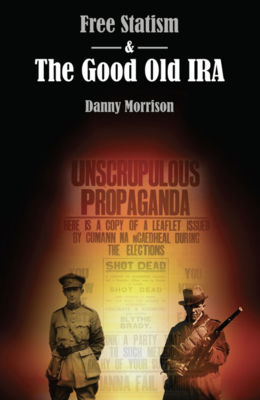
Free Statism & The Good Old IRA by Danny Morrison (Greenisland Press, £15).
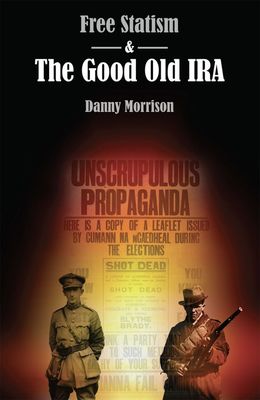
Free Statism & The Good Old IRA by Danny Morrison (Greenisland Press, £15).
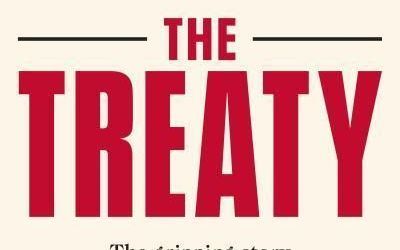
The Treaty by Gretchen Friemann (Merrion Press, £14.99) “Compromise makes a good umbrella, but a poor roof,” observed the American diplomat James Russell Lowell. “It is a temporary expedient, often wise in party politics, almost sure to be unwise in statesmanship.” The unwise compromise of the Anglo-Irish Treaty haunts Ireland to this day. Most of its Irish signatories naïvely hoped it would be a staging post on the road to a 32-county republic while the British viewed it as a pragmatic way of solving “the Irish problem” once and for all. As we know to our cost, neither the Irish delegation nor the British negotiators were correct. The temporary fix soon came unstuck, generating a civil war, in which some 2,000 people were killed including the charismatic guerrilla leader who had masterminded the battle against Britain’s forces. By creating a disunited Ireland, it also ensured continuing conflict. Despite the treaty’s bloody consequences, and probably because of them, few histories deal with the intimate details of the prolonged negotiations in the final months of 1921. It appears to have been accepted that Frank Pakenham’s well-sourced 1935 study, Peace by Ordeal, was good enough.